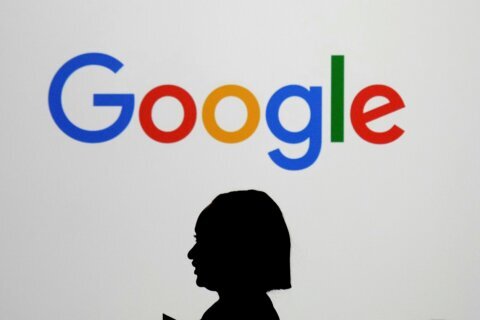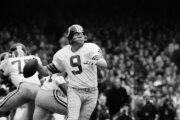WASHINGTON — When Steve Case started AOL 31 years ago in Tysons Corner, only three percent of Americans were online, and for an average of an hour a week, he says.
That put him on the ground floor of what he calls the “first wave” of the Internet. Today, it’s difficult to imagine life without the Internet — it’s established and pervasive enough to have gone through two more waves.
As chairman and CEO of the D.C.-based investment firm Revolution, Case has had a hand in the creation of apps and businesses such as Zipcar and LivingSocial — what he calls the second wave, along with such ventures as Facebook and Waze.
The third wave is already here, Case told WTOP in an interview Friday, and it’s only going to get bigger.
Case is the author of “The Third Wave: An Entrepreneur’s View of the Future,” and said Friday that that consists of “integrating the Internet seamlessly throughout other aspects of our lives — health care, education, transportation, energy, food, things like that.”
Startup companies, Case predicts, will evolve to concentrate “not just on technology, not just on software, not just on apps, but improving important aspects of our lives, like how our kids learn in schools, or how we stay healthy, or get well when we get sick, or how we think about how we think about and manage energy in a smarter kind of way.”
“Those are pretty important parts of our lives, and pretty significant sectors of the economy,” Case says. “They haven’t really changed that much in the first and second wave, but will change a lot in the third wave. And that does create opportunities for people who are positioning themselves to benefit from it.”
That said, Case says that the future will rely on successful cooperation between government and the startup companies and entrepreneurs who seek to capitalize on the third wave: “We need a more flexible, agile approach to thinking about regulation, and we need much more dialogue between the innovators … and the policymakers, especially here in Washington. And if we don’t get that right, we won’t be able to benefit as much as we could from the third wave.”
That doesn’t mean a regulation-free paradise, Case said: In the second wave, engineers and developers created apps and Internet-based businesses on their own —“ the government wasn’t really all that involved. The third wave, because it impacts such important [areas] like health and learning and food, there are gonna be regulations, and we need to make sure we strike the right balance with those regulations.”
That means a larger role for the government. “And the folks in Silicon Valley don’t like to hear that,” Case says, “but the reality is, these are important aspects of our lives, and the government’s gonna have a seat at the table, so we have to have a constructive dialogue and figure out some way to strike the right balance.”
Case reads from, and signs, “The Third Wave” at public events at the following locations in the area:
- The Grand Hyatt DC Hotel, 1000 H Street NW, Washington, on April 12 at 11 a.m.
- 1776, 1133 15th St. NW, Washington, on April 14 at 6:30 p.m.
- Barnes and Noble, in Tysons Corner Center, April 15 at 5 p.m.








